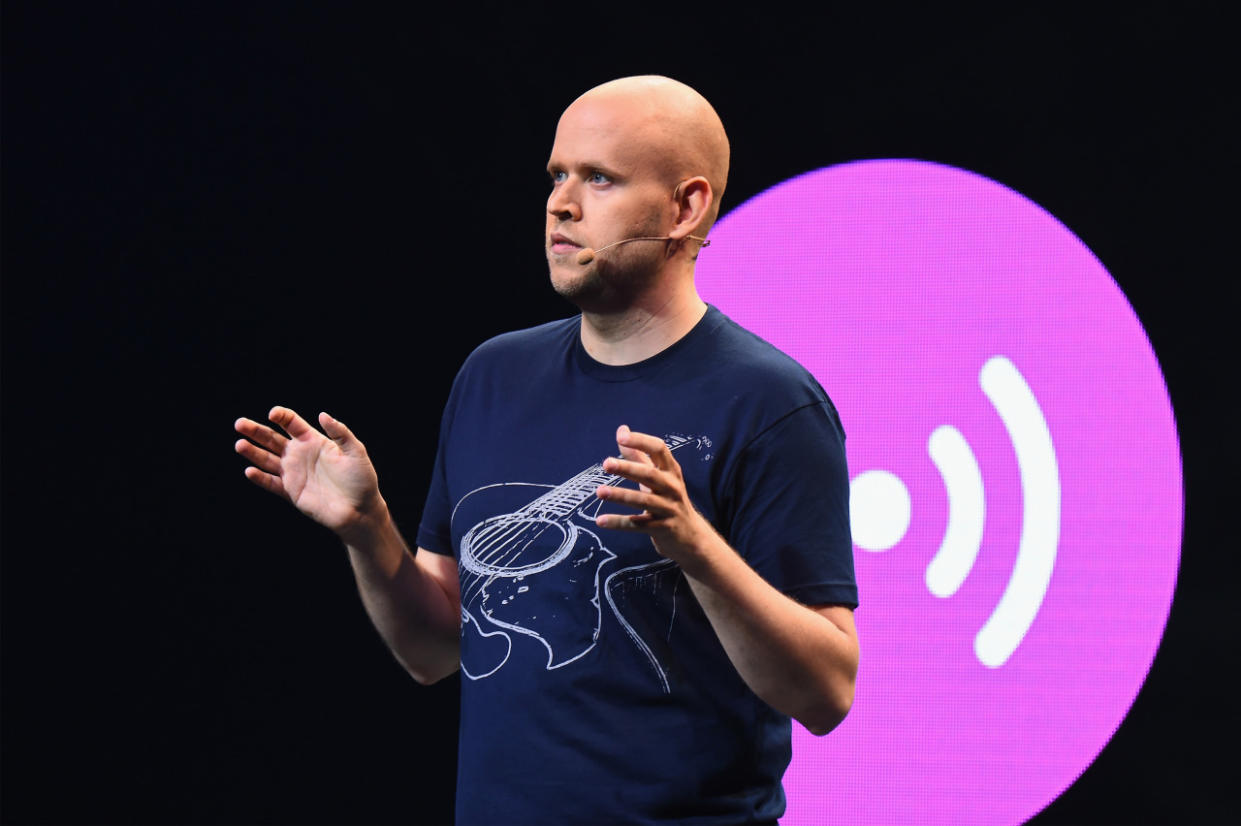In a joint announcement with the White House, Spotify extends parental leave for workers

Daniel Ek, Founder and CEO of Spotify. (Photo: Michael Loccisano/Getty Images for Spotify).
In a presentation streamed to all of its international offices on Thursday morning, music streaming service Spotify announced a program that allows all full-time employees to take up to six months of paid parental leave during the first three years after having a child.
“We don’t want to be just a Google or a Facebook; we want to be a Spotify,” the company’s CEO, Daniel Ek, said from a stage in Stockholm, where the 7-year-old music company was founded. “At the end of the day, what’s going to make us succeed is all of you guys.”
The announcement — which was followed by a conversation between the company’s chief human resources officer, Katarina Berg, and senior presidential adviser, Valerie Jarrett, at Spotify’s New York City office — signals a growing trend for tech companies to offer competitive benefits as a way of attracting talented workers. Netflix, Adobe and Microsoft have all recently taken this step. It also demonstrates the White House’s growing involvement in pushing for paid sick leave and parental leave, something it argues is a profitable move for both small and large businesses.
In his State of the Union address in January, President Barack Obama lamented the fact that the United States is the only advanced country in the world that does not guarantee paid maternity leave. Since then, his administration has pushed to pass the Healthy Families Act, which would require companies with 15 or more employees to offer up to seven paid sick days per year.
A 2014 National Study of Employees found that U.S. employers offer an average of 12 weeks of parental leave to new parents, as mandated by Family and Medical Leave Act of 1993. However, businesses are not required by law to offer full-time or even part-time pay to parents during this period.
After the announcement, Jarrett explained that part of the White House’s strategy is to display the actual bottom-line improvements that offering perks like paid parental leave can bring to a company.
“This is not something that you’re doing as an extra,” she said. “The private employers who are doing it will really help us drive Congress to act and to not look at this as a mandate but as a business imperative.”
Jarrett also offered an anecdote from her time as a working mother — as deputy chief of staff to former Chicago Mayor Richard M. Daley — when she and a colleague dared ask the mayor for permission to leave a meeting early.
“We kept looking at each other during this meeting, and finally he looks at us and says, ‘What are you thinking about that’s so much more important than this meeting?’ I said to him in a moment of truth, ‘The Halloween Parade starts in, like, 25 minutes.’ He looked at the two of us and said, ‘Well, why are you here?’ The permission that he gave me that day to go be a single mom … made me unbelievably loyal.”
Jarrett ultimately emphasized the individual power of talented employees to push the conversation forward.
“You are so talented — I hope you feel the power that you have,” she said. “Don’t work at a place where you don’t think you can be who you are. You’re going to thrive best if you can be who you are.”

